 October 14, 2021 John E. Ross, KD8IDJ, Editor
| ||||||
Students at UK School for Deaf Youngsters Enjoy Space Chat Ten students at the Mary Hare School for deaf children in the UK took part in what appears to have been a world-first event for Amateur Radio on the International Space Station (ARISS). Facilitating the late-morning direct contact with astronaut Mark Vande Hei, KG5GNP, at NA1SS were ARISS-UK volunteers and members of the Newbury and District Amateur Radio Society (NADARS).
The ground station used the call sign GB4MHN. ARISS-UK volunteers handled the technical aspects, while NADARS members provided students with the "amateur radio experience" through events and activities. Students asked their questions orally, and the astronaut's replies -- as well as questions and answers posed by the audience before the contact began -- were displayed in closed caption format beneath a huge video screen. The Mary Hare School is an aural school for the deaf that teaches students to develop lip-reading skills and to make use of technology. Students range in age from 5 through 19 years old. An enthusiastic audience of some 250 individuals was in the auditorium, where the contact took place, while another 600 students at other locations in the school observed the contact via a web feed. Leading up to the contact, students at the school learned about radio- and space-related topics that touched on physics, chemistry, and biology. Student activities have included designing and flying model Students wanted to know if the astronauts used sign language in space in case something goes wrong, how the ISS would be evacuated in the event of a fire, and whether mobile devices such as cell phones work in space. "You made my day!" Vande Hei said after all the questions had been asked and the students had applauded. Thanks to ARISS, Amateur radio equipment has been on board the ISS for more than 20 years, and most astronauts hold ham radio licenses. ARRL The National Association for Amateur Radio is an ARISS sponsor.
A livestream was available and has been archived. Scouting's Jamboree-on-the-Air Takes Place this Weekend, October 15 - 17 Scouting's largest event in the world -- Jamboree-on-the-Air (JOTA) -- takes place October 15 - 17. During JOTA, Scouts and hams around the world, around the nation, and in your own community meet on the air via amateur radio. All types of Scouts may participate, from Cub Scouts to Boy Scouts and Venturers. The participating Scouts often gather at a station made available by a volunteer, or at one set Scouts typically exchange such information as name, location, Scout rank, and hobbies, and it's expected that many participating Scouts will be amateur radio licensees. Contacts may take place across town, across the country, or even around the world. The World Scout Bureau reported that more than 1.5 million Scouts from some 160 countries took part in JOTA/JOTI (Jamboree-on-the-Internet) in 2017. With no restrictions on age or on the number of participants, and at little or no expense, JOTA allows Scouts to meet and become acquainted with each other by ham radio. JOTA officially starts on Friday evening during the JOTA Jump Start and continues through Sunday evening. Any amateur mode of operation may be used such, as CW, SSB, PSK, SSTV, FM, and satellite. JOTA is not a contest.
To learn what JOTA activity is planned for a given area, contact the local or regional Scout council, a local ham radio operator, or a local amateur radio club. Your local club may be able to direct you to planned JOTA activities. These can include ham stations set up at camporees or other events. If no activities are planned, work with them to get something set up or arrange to visit a local radio operator's ham shack at a scheduled time to participate in JOTA. If nothing is currently planned, you can work with the council or a local unit (pack, troop, crew) to set up a JOTA station or arrange for visits to your ham shack. You can also participate just by making contacts with the many JOTA stations that will be on the air. A good resource for finding a local Scout unit is the Be-A-Scout website. Since the first JOTA in 1958, millions of Scouts have become acquainted with each other through this event. Many JOTA contacts have resulted in relationships between Scout troops and individual Scouts that have lasted many years. ARRL Podcasts Schedule
The latest edition of Eclectic Tech (Episode 44) The On the Air and Eclectic Tech podcasts are sponsored by Icom. Both podcasts are available on iTunes (iOS) and Stitcher (Android) as well as on Blubrry -- On the Air | Eclectic Tech. ARDC Grant to Benefit High School Computer Science Students Amateur Radio Digital Communications (ARDC) is helping computer science students at California High School in San Ramon, California, to become makers by providing a grant to purchase Raspberry Pi computers and Arduino microcontrollers. Computer science AP teacher Sean Raser said he believes that a hands-on approach is the most effective way for students to learn and retain knowledge. The class would aim to accomplish this through encouraging students to invent their own systems using the Raspberry Pis and Arduinos. By combining these devices with sensors, motors, other electronics, and computer code, Raser's challenge has been acquiring enough hardware for all students in his class. With limited resources, his program has been limited to a small number of students, however. A $9,950 ARDC grant hopes to change that by allowing Raser to give all of his students the opportunity to participate. The funds will allow him to provide students with Raspberry Pi and micro:bit computers, Arduinos, and the other components. Raser plans to transform part of his classroom into a makerspace that is accessible to all students at California High School, located in San Ramon. "The results have been extraordinary. The students' creativity and passion for learning truly thrive as a result of being able to bring their own ideas to life," Raser said. One student, for example, is using a
Raspberry Pi Zero and a variety of sensors to record flight data during a model rocket launch. Another has built an automated attendance taker using a Raspberry Pi and RFID sensors. Raser's hope is that these experiences will nudge these students into careers as engineers and scientists. ARDC is a California-based foundation with roots in amateur radio and internet technology. In 2019, ARDC announced the sale of some 4 million consecutive unused AMPRNet internet addresses, with the proceeds to establish a program of grants and scholarships in support of communications and networking research with a strong emphasis on amateur radio. ARDC, which manages AMPRNet, said it planned to provide monetary grants to organizations, groups, projects, and scholarships that have significant potential to advance the state of the art of amateur radio and of digital communications. September 2021 Volunteer Monitor Program Report The Volunteer Monitor (VM) Program is a joint initiative between the ARRL and FCC to enhance compliance in the Amateur Radio Service. This is the VM Program report for September 2021.
VM Program statistics for August showed 2,008 hours on HF frequencies and 2,642 hours on VHF frequencies and above, for a total of 4,650 hours. -- Thanks to Riley Hollingsworth, K4ZDH, Administrator, Volunteer Monitor Program Amateur Radio in the News ARRL Public Information Officers, Coordinators, and many other member-volunteers help keep amateur radio and ARRL in the news.
Share any amateur radio media hits you spot with us. ARRL Learning Network Webinars
Using the Raspberry Pi with Ham Radio / Presented by Jason Oleham, KM4ACK, Tuesday, October 19, 2021 @ 1:00 pm EDT (1700 UTC) Computers have become an important part of amateur radio. The Raspberry Pi is a low-cost yet powerful computer that can be used for many amateur radio tasks. Jason Oleham, KM4ACK, an avid YouTube content creator, discusses how to use the Pi, why he started using it, and why he developed Build-a-Pi, a script that gets hams up and running quickly. ARRL members may register for upcoming presentations and view previously recorded Learning Network webinars. ARRL-affiliated radio clubs may also use the recordings as presentations for club meetings, mentoring new and current hams, and discussing amateur radio topics. The ARRL Learning Network schedule is subject to change. New England Parks On The Air Event Set for Mid-October The inaugural Autumn New England Parks On The Air (NE POTA) event will take place on Saturday, October 16, 0000 - 2359 UTC, the K1USN Radio Club has announced. The goal is to have one group or individual operator at as many Parks On The Air® as possible. The K1USN Radio Club hopes this will become an annual event. This is a recreational radio event, not a contest, so no logs will be required to "This began as a reaction to the widespread local interest in the Parks On The Air (POTA) program here in New England. Last year, Ohio had a successful Ohio-wide POTA weekend, and Wisconsin is now doing something similar," said K1USN Radio Club President Pi Pugh, K1RV. "Autumn is a special time in New England, and I figured the event might generate some extra interest before winter. Perhaps this can become an annual New England event or, better yet, an annual nationwide or worldwide event." ARRL New England Division Vice Director Phil Temples, K9HI, is hoping the event will give the public a chance to learn a bit more about amateur radio. He encouraged those who plan to participate to promote the event with informational handouts. Jamboree-on-the-Air (JOTA), the largest Scouting event in the world, also occurs during the weekend of October 15 - 17, and NE POTA participants are encouraged to reach out to local Scouting groups. A spreadsheet has been created to keep track of individuals and clubs that register. Contact Pugh for more information. Announcements
UN Day Transmission from Sweden's SAQ Set for October 24 On United Nations Day, Sunday, October 24, the vintage and historical Alexanderson alternator in Grimeton, Sweden, with call sign SAQ, is scheduled to send out a message to the world on 17.2 kHz CW. The events of the day will be livestreamed on YouTube starting at 14:25 UTC. Transmitter startup and tuning will begin at 1430 UTC, with the message transmission to follow at 1500 UTC.
This year's message was drafted by Swedish human rights lawyer and sustainability expert Parul Sharma. SAQ will conduct some test transmissions on October 22, 1100 UTC - 1400 UTC and will be on air for short periods during this interval. Comments are welcome to info@alexander.n.se. For a guaranteed e-QSL, use the online report form, which will be open October 24 - November 14. Dating from the 1920s, the Alexanderson alternator -- essentially an ac generator run at extremely high speed -- can put out 200 kW but typically is operated at less than one-half that power level. Once used to provide reliable transatlantic communication, it is now a museum piece and only put on the air on special occasions. The transmitter was developed by Swedish engineer and radio pioneer Ernst Alexanderson, who was employed at General Electric in Six 400+ foot towers with 150 foot crossarms support a multi-wire antenna for SAQ. The actual signal radiates from a vertical wire, one from each tower. Amateur radio station SK6SAQ will be active on these frequencies: 3.535 MHz CW, 7.035 MHz CW, 14.035 MHz CW, 3.755 MHz SSB, and 7.140 MHz SSB. QSL SK6SAQ via email to info@alexander.n.se, via the bureau, or direct to Alexander - GVV, Radiostationen Grimeton 72 SE-432 98, Grimeton, Sweden. Two stations will be on the air most of the time. For a guaranteed e-QSL, use the online report form, which will be open October 24 - November 14. Author, QRP Enthusiast Rich Arland, K7SZ, SK Richard H. "Rich" Arland, K7SZ, of Dacula, Georgia, died on October 7. An ARRL member, he was 75. In addition to other books, Arland was the author of Low-Power Communication and other ARRL publications, and he was an avid QRP enthusiast and experimenter. Arland had been a radio amateur since 1963. He volunteered in the ARRL Field Organization as a Technical Advisor and as an Official Emergency Station since 1990.
He entered amateur radio as a broadcast band and shortwave listener. A US Air Force veteran, Arland worked for 20 years in Wilkes-Barre, Pennsylvania. He and his wife Patricia, KB3MCT, relocated to Georgia in 2008. In addition to QRP, Arland had an abiding interest in vintage "boat anchor" gear and had been restoring a Drake 2B and a Heathkit HR-10 receiver. He had planned to install a Hallicrafters SR-160 transceiver and matching power supply/speaker as his primary HF SSB radio. Arland was also a collector and restorer of military communications radio equipment. His collection included a TRC-77A special ops HF radio and four ARC-5 Command Set receivers, complete with dynamotors. He procured an AN/GRC-109 CIA/Special Forces portable HF "spy radio" used extensively in Vietnam for backup communications. He held an FCC General Radiotelephone Operator's License (GROL). Arland also enjoyed experimenting with antennas, building and using QRP gear, SWLing, and CW operating. In Brief...
The K7RA Solar Update Tad Cook, K7RA, Seattle, reports: Although we saw sunspots on every day of the October 7 - 13 reporting week, solar activity declined a bit. Average daily sunspot number went from 30.7 to 23.6, and average daily solar flux from 86.9 to 85.6. Geomagnetic indicators were higher, with the average daily planetary A index rising from 8.1 to 12.4, and the average daily middle latitude A index from 6.7 to 10.3. The sunspot numbers and middle latitude A index for October 13 are preliminary, but should be resolved by October 15. The same is true On Saturday, October 9, Spaceweather.com reported a strong Earth-directed M1.6-class solar flare, with CME erupting at 0640 UTC and causing an HF radio blackout over the Indian Ocean. This caused the planetary A index on October 12 to hit 45 and Alaska's College A index to read 60. Predicted solar flux is 82 on October 14 - 15; 80 on October 16 - 20; 88 on October 21 - 22; 85 on October 23 - 24; 90, 100, 95, and 90 on October 25 - 28; 88 on October 29 - 30; 85 on October 31 - November 5; 88 on November 6; 85 on November 7 - 13; 88 on November 14 - 15; 90 on November 16, and 88 on November 17 - 18. Predicted planetary A index is 5 and 8 on October 14 - 15; 5 on October 16 - 17; 12 on October 18; 8 on October 19 - 21; 5 on October 23 - 24; 10 on October 25; 5 on October 26 - November 1; 8 on November 2; 5 on November 3 - 5; 10 on November 6 - 7; 8 on November 8 - 9; 5 on November 10 - 12, and 10, 12, 12, 10, and 8 on November 13 - 17. Sunspot numbers for October 7 - 13 were 13, 13, 14, 38, 35, 26, and 26, with a mean of 23.6. The 10.7-centimeter flux was 85.7, 92.4, 81, 84.5, 88.5, 83.5, and 83.5, with a mean of 85.6. Estimated planetary A indices were 5, 4, 5, 9, 13, 45, and 6, with a mean of 12.4. The middle latitude A index was 3, 3, 4, 9, 15, 32, and 6, with a mean of 10.3. A comprehensive K7RA Solar Update is posted Fridays on the ARRL website. For more information concerning radio propagation, visit the ARRL Technical Information Service, read "What the Numbers Mean...," and check out the Propagation Page of Carl Luetzelschwab, K9LA. A propagation bulletin archive is available. For customizable propagation charts, visit the VOACAP Online for Ham Radio website. Share your reports and observations. Just Ahead in Radiosport
For more information, visit the ARRL Contest Calendar. Upcoming Section, State, and Division Conventions Some conventions and hamfests may have been canceled or postponed due to the coronavirus pandemic. Check the calendar of canceled events on the ARRL website.
Find conventions and hamfests in your area. ARRL -- Your One-Stop Resource for
Subscribe to...
Free of charge to ARRL members...
| ||||||
.png)
.jpg) rockets, making astronomical observations, and observing authentic spacesuits.
rockets, making astronomical observations, and observing authentic spacesuits.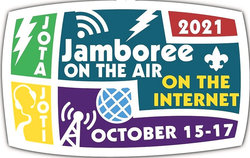 up just for JOTA. Communication typically involves SSB or FM voice, but it's also possible that other modes, such as video or digital, will be employed -- or even repeater or satellite communication.
up just for JOTA. Communication typically involves SSB or FM voice, but it's also possible that other modes, such as video or digital, will be employed -- or even repeater or satellite communication..JPG)
.jpg) The latest episode of the On the Air podcast (Episode 22) features a discussion with Chris Plumblee, W4WF, about contesting and what this activity has to offer new amateurs.
The latest episode of the On the Air podcast (Episode 22) features a discussion with Chris Plumblee, W4WF, about contesting and what this activity has to offer new amateurs..jpg) features Steve Allen, KC1SA, and a discussion about the current electronics parts shortage and what it may mean for amateurs.
features Steve Allen, KC1SA, and a discussion about the current electronics parts shortage and what it may mean for amateurs..jpg) students would have the opportunity to learn complex technical concepts first hand.
students would have the opportunity to learn complex technical concepts first hand..JPG)
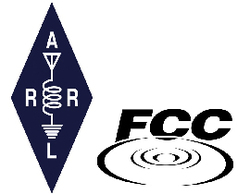 A former licensee in Durham, North Carolina, received an Advisory Notice for operating under a call sign and license cancelled by the FCC.
A former licensee in Durham, North Carolina, received an Advisory Notice for operating under a call sign and license cancelled by the FCC.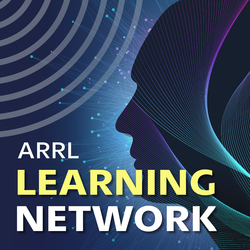 Visit the
Visit the 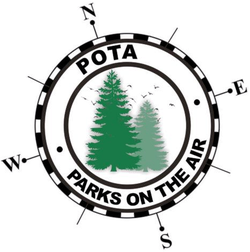 participate. Summaries of activity are encouraged, however, and a
participate. Summaries of activity are encouraged, however, and a 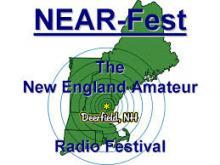 NEAR-Fest XXX
NEAR-Fest XXX On October 16, 0800 - 1600 UTC, HV0A in Vatican City (#112 on Club Log's Most-Wanted DXCC list) station will be active OSCAR 100 in CW and SSB. This will mark the first activation of a Vatican station on the OSCAR 100 satellite.
On October 16, 0800 - 1600 UTC, HV0A in Vatican City (#112 on Club Log's Most-Wanted DXCC list) station will be active OSCAR 100 in CW and SSB. This will mark the first activation of a Vatican station on the OSCAR 100 satellite.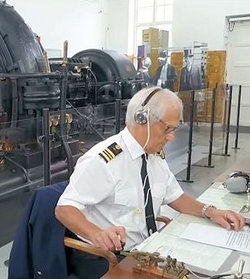
 Schenectady, New York, and was chief engineer at the Radio Corporation of America.
Schenectady, New York, and was chief engineer at the Radio Corporation of America.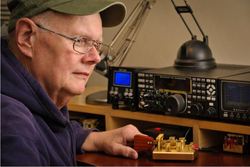 From 2000 until 2003, Arland contributed the "QRP Power" column for QST. He has written for several other radio publications, including CQ, Popular Communications, WorldRadio, and Monitoring Times.
From 2000 until 2003, Arland contributed the "QRP Power" column for QST. He has written for several other radio publications, including CQ, Popular Communications, WorldRadio, and Monitoring Times..jpg) The Intrepid-DX Group has extended the submission deadline for this year's Youth "Dream Rig" Essay Contest to November 15, 2021. The winner of the 2021 contest will be announced on December 1. Those who submitted an essay last year are invited to submit again. The prize is an Icom IC-7300 transceiver. Entry rules: (1) Write and submit a two-page essay that answers the question, "How can amateur radio evolve to remain relevant in the age of the internet? (2) Be a US amateur radio licensee aged 19 or younger. (3) Promise to keep the radio for 1 year and to use it on the air. (4)
The Intrepid-DX Group has extended the submission deadline for this year's Youth "Dream Rig" Essay Contest to November 15, 2021. The winner of the 2021 contest will be announced on December 1. Those who submitted an essay last year are invited to submit again. The prize is an Icom IC-7300 transceiver. Entry rules: (1) Write and submit a two-page essay that answers the question, "How can amateur radio evolve to remain relevant in the age of the internet? (2) Be a US amateur radio licensee aged 19 or younger. (3) Promise to keep the radio for 1 year and to use it on the air. (4) 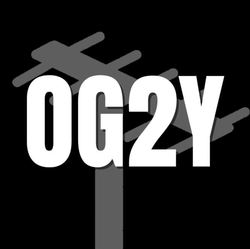 OG2Y is the new Youth call sign for Finland. The
OG2Y is the new Youth call sign for Finland. The 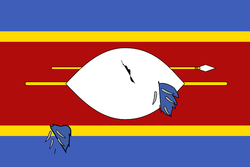 The Kingdom of Eswatini (formerly Swaziland) in Africa has become a popular spot for DXpeditions. Three operations are planned for October and one for November 2021.
The Kingdom of Eswatini (formerly Swaziland) in Africa has become a popular spot for DXpeditions. Three operations are planned for October and one for November 2021. 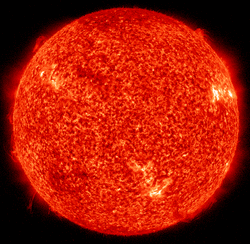 for the solar flux forecast, which is actually a day late, so we present the numbers from Tuesday's forecast instead of Wednesday.
for the solar flux forecast, which is actually a day late, so we present the numbers from Tuesday's forecast instead of Wednesday.







